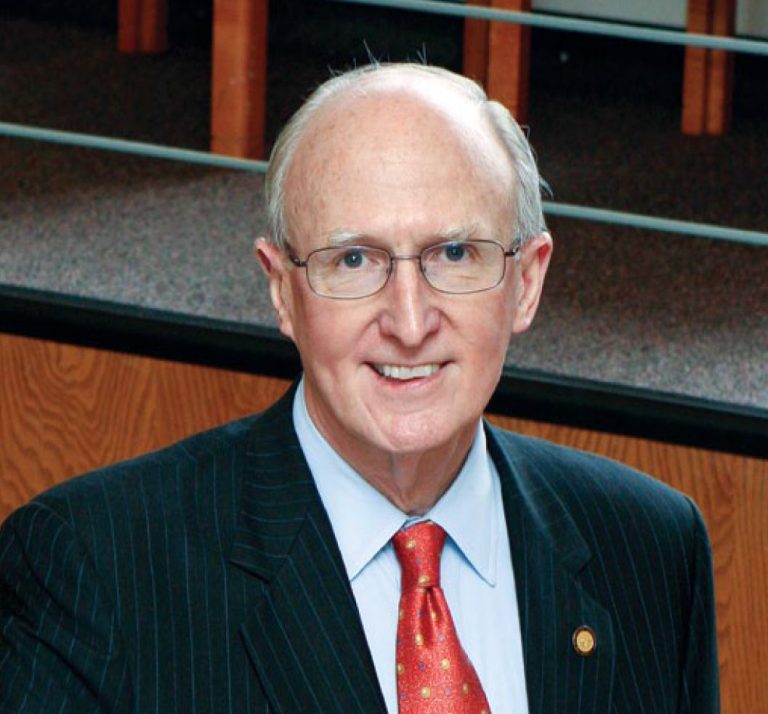
Dr. Robert A. Scott
Some of us still use paper calendars and “turn over a new leaf” at the start of a new year. Some even end the year by reading from the pages of the past year’s calendar and tossing them into the fireplace or trash bin.
For those so inclined, the next step is to propose resolutions for the new year and resolve to abide by them.
The most common resolutions are personal, like losing weight or saving money. One would think that these resolutions are the easiest to manage, but they require discipline as well as desire.
Some resolutions are like a prayer, a plea to our inner selves to be better in some way. A resolution can be a goal, a strategy, or a system for monitoring our attainment of goals.
How and why did this tradition of New Year’s resolutions get started?
According to several historians, the practice started in ancient times, nearly 4,000 years ago. Originally related to agriculture, farmers and their families either crowned a new king or affirmed their loyalty to one at the start of the planting season.
They promised to pay their debts and return objects they had borrowed in the hopes that such pledges would result in favors from the gods.
Julius Caesar changed the annual calendar to start in January instead of spring. He named it after Janus, whose name comes from the Latin word janua, meaning gate.
Janus served as the god of gates and doors, of entrances and exits. The Romans prayed to Janus at the beginning and end of any important action, especially a war.
Janus had two faces and could look in two directions at once—forward and backward, to the future and to the past. January was put first in order among the 12 months by Caesar because it celebrated these positions of seeing backward and looking forward.
After this, it was a natural step to think of Jan. 1 as a time to both reflect on the past and pledge to the future. It was a short step over hundreds of years to use the occasion to admit past mistakes and resolve to be better in the year ahead, making promises to ourselves instead of to gods.
While we do not usually celebrate “two-faced” people, the ability simultaneously to learn from the past and find hope in the future is at the very heart of the human experience and has been since ancient times.
Among Asian philosophers, the ideas of past and future are often paired with looking within and looking without.
As I look forward to 2024, I think about a recent past of viruses and war and wonder what I can do to promote public health and peace.
While we often talk in terms of “turning over a new leaf” as if we want to stop a bad habit, the leaf in our reference is a piece of paper. We want a metaphorical “clean slate” on which to chart our path forward. What would that look like?
What can we each do to promote the common good? What can we do about the urgency of migration, the scourge of war, the devastation human-caused climate change? These are huge issues. Can individuals make a difference in them?
First, we need to become aware and informed. As a sage said” Opportunity doesn’t necessarily knock on the door; it may be leaning against the wall, waiting to be noticed.
We can read and engage in group discussions about these existential challenges. We can learn about organizations that promote education and discourse on the life-threatening challenges we face. We can learn to appreciate cultural diversity and respect the integrity of the earth. It is a valued partner. not a bottomless pit.
Second, we can take action by writing letters to editors in hopes of gaining the attention of readers and elected officials. We can encourage voter registration so that our neighbors and friends are sure to participate in this central activity of democracy. We can support nonprofit groups that promote sensible international initiatives and immigration rules, peace and social justice, and alternatives to fossil fuels.
We should affirm that all humans deserve dignity, no matter the indignities of their governments.
In memory of Janus, we look backward to learn lessons from our past to be stronger in the future.
We can look inward to think of what we can do and look outward to see what needs to be done. We can look forward with hope, seeking ways to build on strengths and find new ways to serve the common good. These lessons are important for individuals as well as for organizations, for communities, and for nations.
Let us each resolve to look outward as well as inward as we embark on the new year.
Dr. Robert A. Scott is president Emeritus, Adelphi University; author, “How University Boards Work,” Johns Hopkins University Press; Eric Hoffer Book Awardee







Fine article. As a way to address the existential threats to democracy worldwide, I recently became a member of the UU at Shelter Rock. There I’m finding people sharing a common world view and a spirituality based on facts, study, diversity and personal responsibility. Sunday services made of beautiful music and songs and timely sermons are helping provide with love, togetherness and purpose.
Weekly Breakfasts and lunches with Dick Dina and other long-time friends also help…
Paul, thanks. I am a UUer too. Day hi to Dick for me. Best wishes, Bob